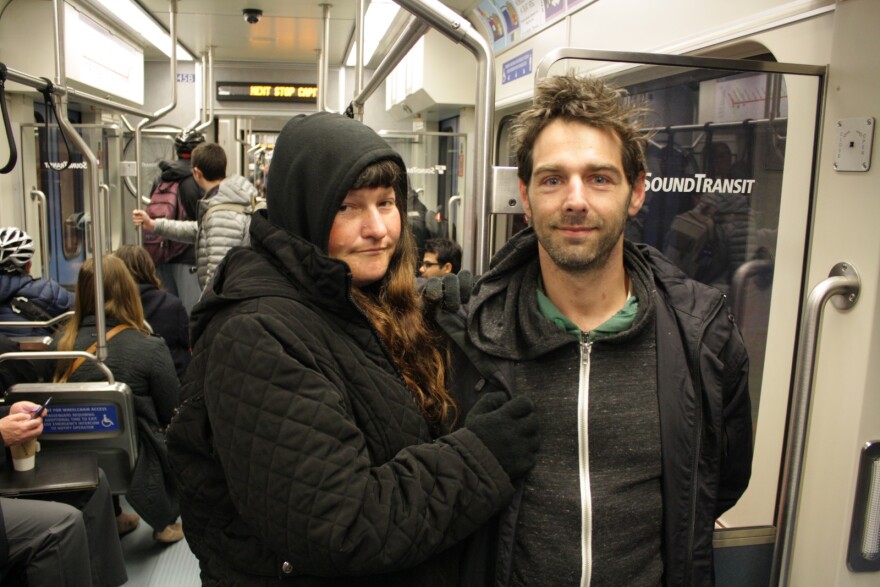Barger and Nelson live in a tent city in the University District. They used to use a lot of drugs. But that changed when they found out Barger was pregnant.
“We made steps to change really fast,” Nelson said. “We’ve come a long way in the last three months.”
Every day, the couple makes their way to a methadone clinic on Capitol Hill. They used to take the bus. Now that the light rail station is open, they take the train. Their trips are paid for with a special monthly transit pass called Hopelink.
"It’s for medical stuff and treatment’s considered medical appointment,” Barger said. “We can keep on the Hopelink passes as long as we’re going to this treatment center."
Programs like Hopelink are supposed to let the neediest people travel, but it only helps low-income people who qualify. These two qualified for medical reasons.
Nelson and Barger worry about their homeless friends who don’t qualify. Their friends tend to get around on free bus tickets. Trouble is, Sound Transit doesn’t honor free bus tickets on the light rail system.
Sound Transit also offers discounted day passes. Service providers pick them up for $1 each and hand them out. Metro buses don’t honor those passes.
Katie Wilson of the Transit Riders Union said it’s a problem that has existed for a long time.
“It’s just getting much worse with the bus service restructure,” Wilson said. Because now it’s hard to get a lot of places in Seattle without making at least one leg of your journey on light rail.
Outside the University of Washington station, Keith Haarsagar, who works for Metro, hawked Orca cards to riders as they emerged from the station. Asked about very low income riders, Haarsagar said the transit agencies have their hearts in the right place.
"The goal is to get everybody riding transit,” Haarsagar said, “and that’s everybody across the spectrum."
Metro and Sound Transit have already collaborated on the ORCA LIFT card, which lets low-income people travel anywhere for $1.50. They’re working on another solution for people who can’t even pay that price.
Having access to rail opens opportunities for people. For Erik Nelson, it lets him focus on his future.
"The methadone is the motivation to stay alive, stay on top of things, and you know, just focus,” he said. “Being able to ride the train – that’s a big step for us."


